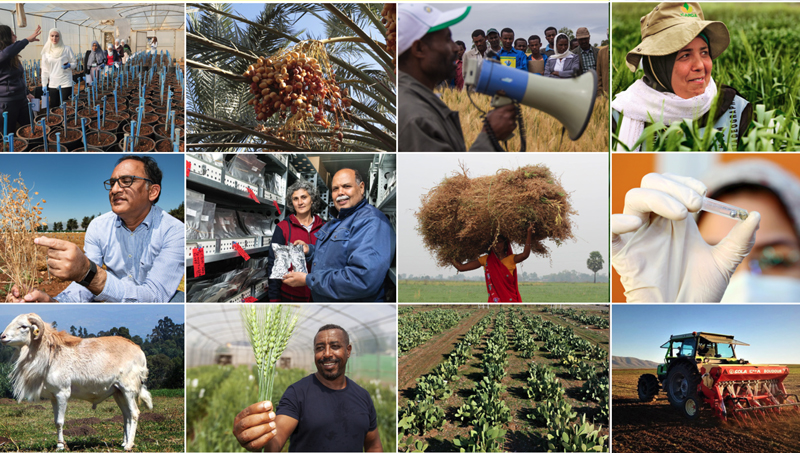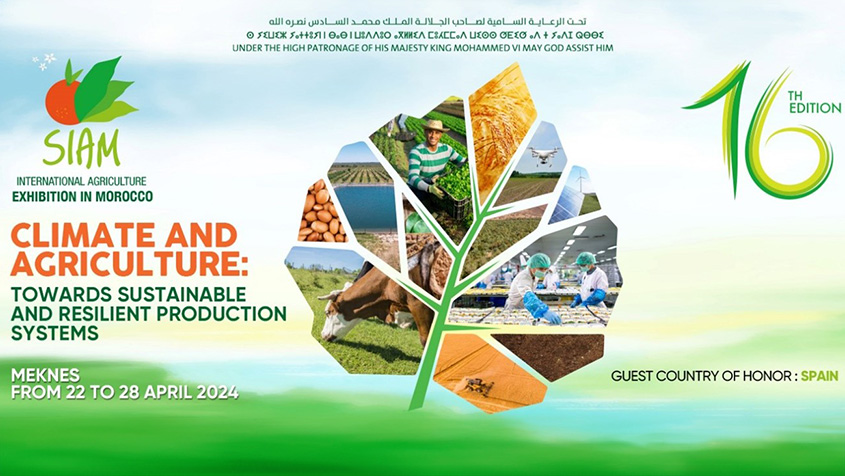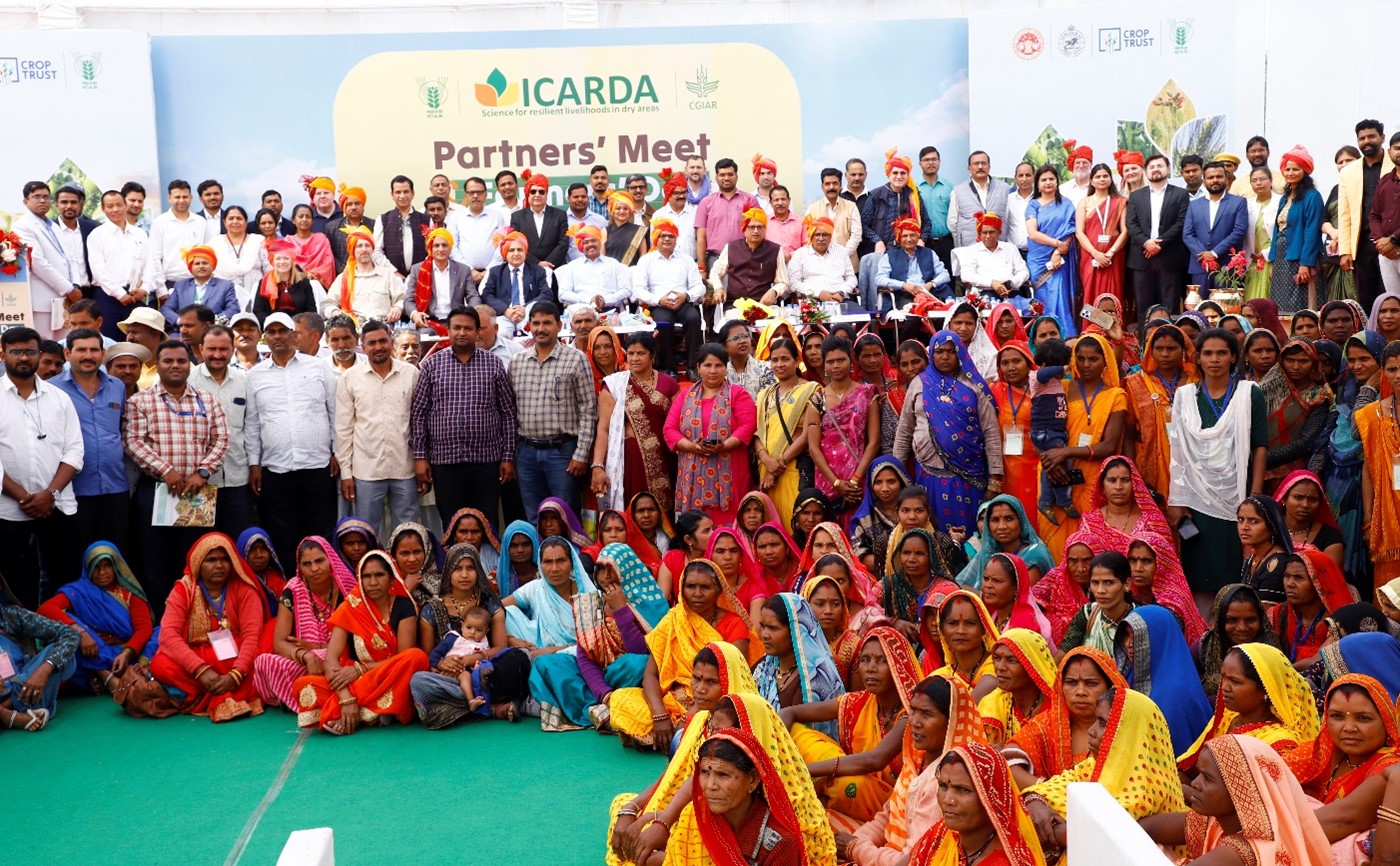Pioneering Agri-Science for 2024 - A Message from Aly Abousabaa
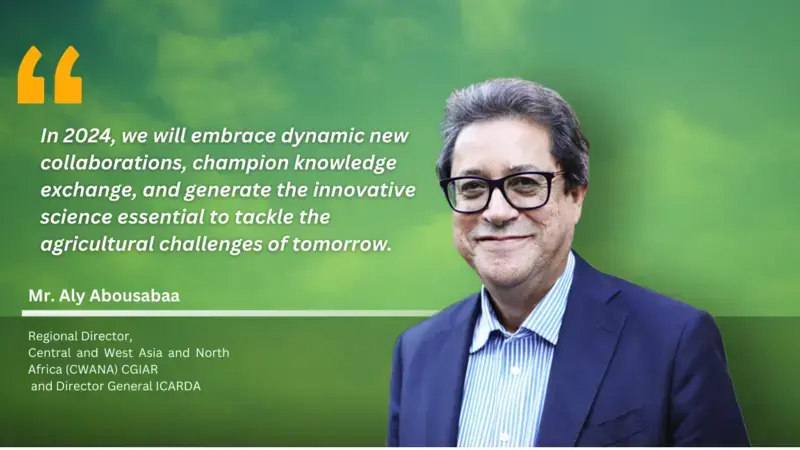
Dear Distinguished Partners, Colleagues, and Friends of ICARDA,
I hope you are well rested as we look forward to a productive 2024.
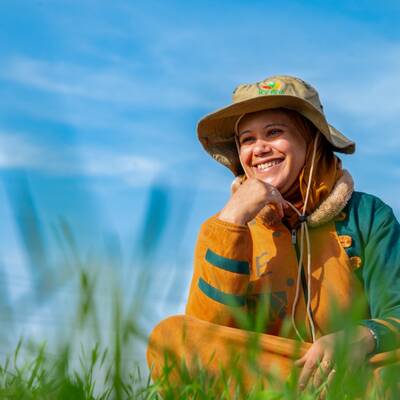
I want to begin by extending my sincere gratitude for the continued support, commitment, and insightful collaboration of my ICARDA colleagues and our partners, who are critical to delivering our mission. I genuinely believe that by working together, we are making significant headway in delivering resilient and equitable agri-food systems to rural dryland farmers in the face of the climate emergency. Indeed, in my recent SciDEV article, I was keen to emphasize how ICARDA stands at the forefront of global research in adapting dryland agriculture to shifting and complex challenges due to our collaborative partner approach, including within CGIAR.
In 2024, we are looking ahead to exciting science innovations in our pipeline, the launch of our new ICARDA 2030 Research and Innovation Strategy, and a reinvigorated effort to strengthen our partnerships and resource mobilization outreach to support our growth. We remain committed to driving scientific advancement that delivers resilient and equitable food systems to the many vulnerable dryland communities that so urgently need them.
RELEVANT SCIENCE WITH ICARDA's NEW 2030 RESEARCH & INNOVATION STRATEGY
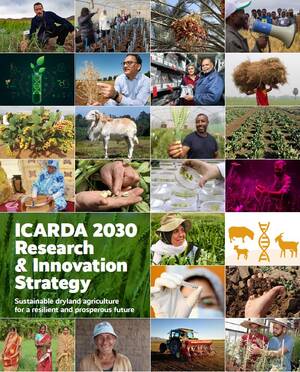
I'm very proud to announce we'll soon publish ICARDA's 2030 Research and Innovation Strategy. Carefully crafted throughout 2023 in close cooperation and consultation with our partners, colleagues, and contemporaries, it ramps up our science offer and serves as a roadmap that aligns regional and global agricultural research priorities. It also builds on the strengthened partnerships we achieved in 2023, where I met with agricultural ministers in more than half of the CWANA countries that ICARDA supports to ensure we incorporate their priorities and insights into the new strategy.
The strategy also takes a sharpened focus on exploring new opportunities in areas such as genomics, AI, data capture, phenotyping, carbon capture, soil desalination, and more. Our research will also take a deeper dive into the impact of climate change on science, both in how we target our innovations to its intensifying impacts and how our science can keep pace with the formidable acceleration of the climate emergency.
STRENGTHENING PARTNERSHIPS
In 2024, we'll continue to strengthen ongoing collaborations and gather the input from our partners so vital to deliver our new strategy. To this end, I will continue to meet with ICARDA's esteemed partners, key stakeholders, and supporters across the region to outline how our science can contribute to solving our collective challenges.
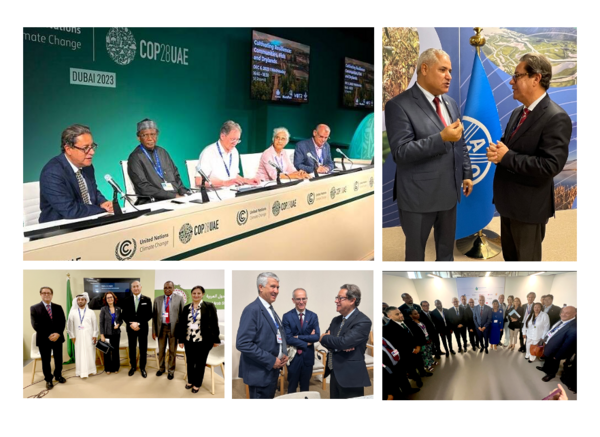
At COP28 in the UAE, for example, I had the pleasure of meeting with many partners and key stakeholders. I was proud to learn how our work continues to change lives, and I was encouraged by the continuous support expressed.
As well as this, we recently celebrated a decade of collaboration with Morocco on ICARDA's globally renowned Rainfed Research Platform, generously supported by the Institut National de la Recherche Agronomique du Maroc, with which we look forward to generating yet more innovation.
And CGIAR remains a key partner in facilitating collaboration in the region with our sister CGIAR research centers like IWMI, WorldFish, and IFPRI on dryland science, as well as a host of the other CGIAR Centers with whom we work on 17 of CGIAR's global portfolio of agricultural initiatives, one of which, the Fragility to Resilience in CWANA initiative, we continue to lead throughout and beyond 2024.
I was deeply honored to host CGIAR's System Council and Independent Science for Development Council annual 2023 meetings in Rabat, both representing unique opportunities for ICARDA to showcase its latest research and innovations and demonstrate how our decentralized model can serve as a framework for other CGIAR centers.
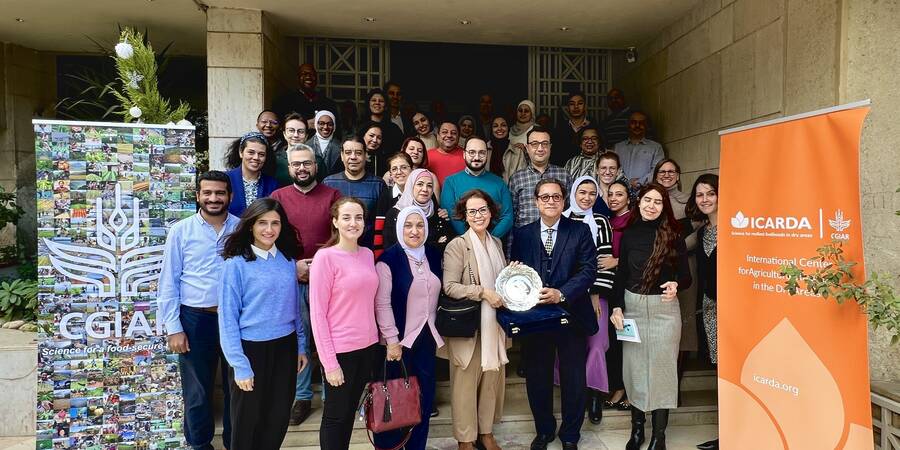
We were equally privileged to host Dr. Ismahane Elouafi, CGIAR's newly appointed Executive Managing Director, as she kicked off her global tour of CGIAR Centers at ICARDA in Cairo in December to meet staff and learn more about the exciting research that we are undertaking. I joined Dr. Elouafi in co-authoring a blog for World Soil Day to underscore the critical role of soil research in food production, carbon storage, and desalination, which constitutes a growing concern in arid regions.
GENERATING NEW SCIENCE FOR 2024
In 2024, as well as focusing on the new research themes of big data, genome editing, desalination, and carbon sequestration detailed in the 2030 strategy, we'll introduce fresh science into our portfolio.
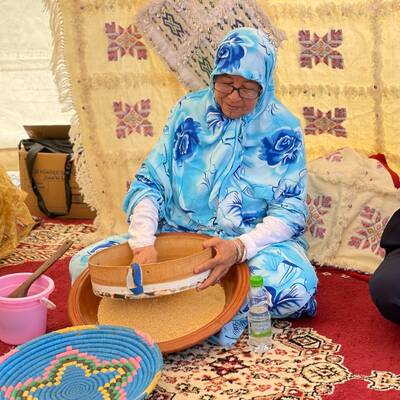
To improve farmer enterprise, we'll develop more resilient and equitable value chains for dryland farmer communities by improving access to financial and economic services such as micro-credits and investment mechanisms. We'll better connect farmers with other stakeholders to widen their client base and attract better prices. We'll generate more public-private partnerships to improve access to affordable and competitive technology, such as seeders, raised-bed machines, and the seeds themselves.
Social inclusion is critical to delivering equitable impacts in the communities we serve, and we'll increase our support for women cooperatives in Morocco, Tunisia, Lebanon, and Ethiopia to drive normative, economic, legislative, and social change by coupling social and technical interventions, introducing Gender Transformative Approaches and fostering national dialogues.
Our groundbreaking work in soil, land, and water will continue through a knowledge-sharing network of soil health living labs across nine Mediterranean countries and the development of novel low environmental footprint diversification options for wheat-based production systems that improve soil health.
As the impact of land degradation increases, we aim to fully implement a large-scale rangeland restoration policy in Tunisia while ramping up conservation agriculture, working directly with dryland farmers to raise awareness of approaches such as crop diversification, use of forages, planting trees to shade crops, and deploying indigenous tree species for sustainable honey production.
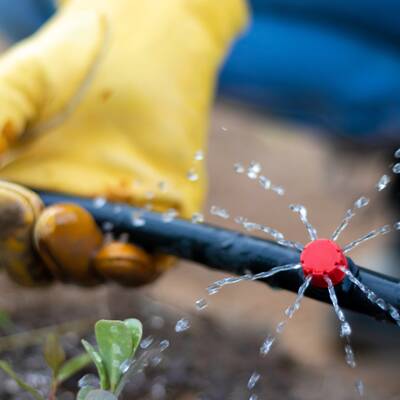
Drought remains a primary challenge in this arid region, so in 2024, we'll expand our agricultural water management monitoring network to additional MENA countries and build decision support and early warning systems to tackle water demand-supply gaps. We'll explore alternative water resources, scale up modern irrigation technologies such as solar-powered pumps and agrivoltaic greenhouses, and develop more saline and drought-tolerant crop varieties to deal with the region's diminishing water and rising salinity.
In our livestock work, we'll analyze diverse dryland forages to help reduce greenhouse gas emissions from livestock production, generate experimental methods for quantifying methane emissions from small ruminants, and compile greenhouse gas emission inventories to enhance mitigation and adaptation options.
Our Monitoring, Learning, and Evaluation (MEL) Team will deploy innovative digital methods, including artificial intelligence, to systematically track, assess, and improve the effectiveness and efficiency of projects and programs.
ATTRACTING VITAL INVESTMENTS IN AGRICULTURAL SCIENCE
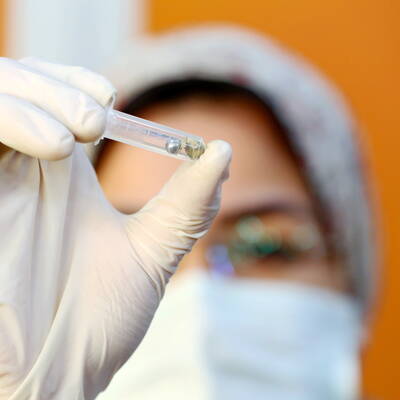
While our funding in 2023 held steady and looks set to increase in 2024, in the face of a global trend of diminishing research funding, we must continue to work harder to attract the levels of investment that will allow us to scale our research and innovations. Resource mobilization will be a key pillar in 2024, so we are strengthening our capacity to enhance the delivery of high-quality research project proposals, including optimizing processes, systems, and tools that will also support the delivery of projects and impact.
Many initiatives, such as our flagship Integrated Desert Farming Innovation Program, the USA/UAE AIM4C Initiative, and FAO's Water Scarcity Initiative, aim to attract funding not just for ICARDA but to generate regional and global investment facilities that can fund efforts to benefit the whole region, and beyond. This exemplifies the collaboration that is vital to fund and execute research.
We are also fully on board with CGIAR's Investment Case presented at COP28 to help ramp up our work and fulfill CGIAR's mission to make 500 million global farmers climate resilient. This investment case convinced partners to commit $890 million to fund CGIAR efforts, a significant achievement.
BUILDING UPWARDS
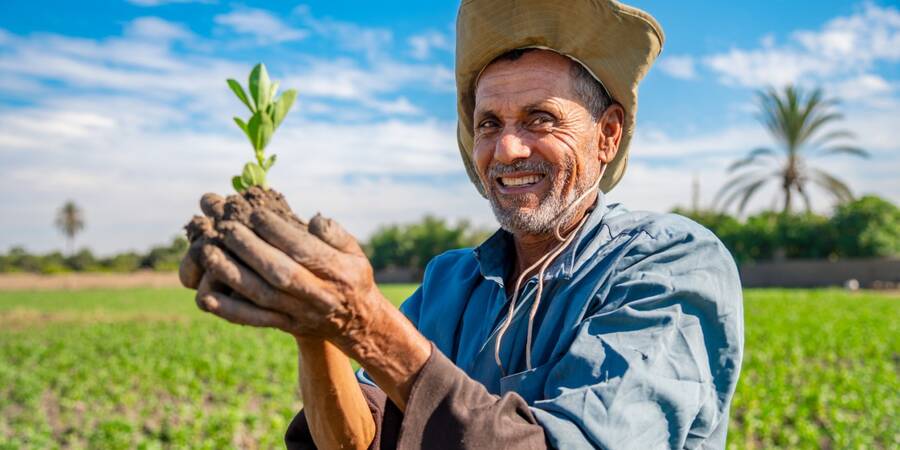
The world faced some formidable challenges in 2023, including earthquakes and floods, droughts and heatwaves, and political instability and conflict, which continues into 2024. ICARDA extends our heartfelt sympathies to all those affected. When the time is right, we stand ready to leverage our expertise to help regenerate resilient food systems as a key foundation for restoring agricultural livelihoods and economies.
As we set out in our new 2030 Research and Innovation Strategy this year, we will continue to maintain a unique role in driving change, exploring new avenues of cooperation, fostering knowledge exchange, and acquiring the innovative skillsets required to meet the challenges of tomorrow.
In conclusion, I extend my best wishes for prosperity and growth to you, your organizations, and your families. Let us venture forward together with confidence and optimism and make 2024 a year of shared success.
I thank you for your trust and support.
With sincere appreciation,
Aly Abousabaa
Director General, ICARDA
CGIAR Regional Director – Central and West Asia and North Africa

